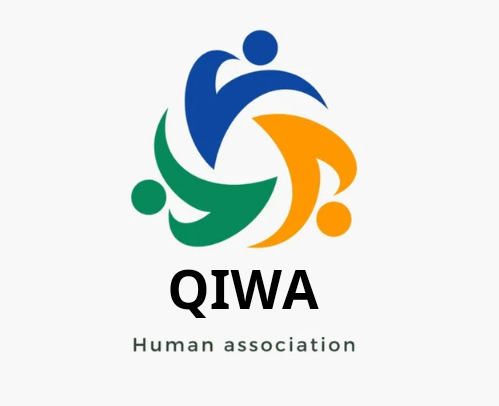
Mental Health Assessment In Schools
FollowOverview
-
Founded Date September 5, 1957
-
Sectors معلم دراسات إجتماعية
-
Posted Jobs 0
-
Viewed 30
-
Company size Isabell mental health tools Erwin Services
Company Description
The Biggest “Myths” About Mental Health Assessment Improvement Could Actually Be Accurate
Mental Health Assessment Improvement: Strategies for Enhanced Outcomes
Intro
Mental health assessments play an essential role in comprehending the psychological wellness of individuals, notifying treatment choices, and tracking progress. With rising mental health issues worldwide, the need for more effective assessment strategies has actually never ever been greater. This short article delves into the key parts of mental health assessments, existing obstacles, and strategies for improvement to ensure more accurate diagnoses and much better patient outcomes.
Understanding Mental Health Assessments
A mental health assessment typically involves different approaches to examine an individual’s psychological state, including interviews, questionnaires, and observational assessments. These procedures aim to identify mental health disorders, examine their severity, and assess how they impact day-to-day functioning and lifestyle.

Common Components of Mental Health Assessments
-
Clinical Interviews: Conversations with mental health specialists to gather an individual’s history, symptoms, and individual experiences.
-
Standardized Questionnaires: Surveys that evaluate various aspects of mental health, such as mood, anxiety, and characteristic, providing quantifiable data.
-
Behavioral Observations: Professionals observe an individual’s behavior over a certain duration to get insight into their frame of mind.
-
Physical examination: In some cases, a physical exam is called for to rule out any medical conditions contributing to mental health signs.
-
Security Information: Gathering details from relative, friends, or previous healthcare suppliers to get a more comprehensive view of the individual’s mental health history.
Current Challenges in Mental Health Assessments
Despite the very best efforts to perform extensive mental health assessments, a number of challenges hamper their effectiveness:
-
Stigma: Many people may hesitate to seek assistance due to the preconception surrounding mental health, resulting in incomplete or misleading assessments.
-
Limited Resources: A lack of qualified mental health experts in various areas results in longer wait times and less extensive assessments.
-
Cultural Sensitivity: Assessments might not account for cultural distinctions, causing misconceptions or inaccurate representation of symptoms.
-
Subjectivity: Many assessments depend upon self-reported data, which can be prejudiced or affected by numerous aspects such as mood or social desirability.
-
Technological Barriers: While telehealth and digital assessments have emerged, not all people have access to the essential innovation, developing disparities in assessment quality.
Strategies for Improvement
To resolve these challenges and improve the efficiency of mental health assessments, a number of techniques can be employed:
1. Standardization of Assessment Tools
Developing and utilizing standardized assessment tools that are culturally sensitive and confirmed across diverse populations can assist produce more reliable information.
2. Training and Education
Continuous education for mental health specialists on emerging assessment techniques, cultural proficiency, and efficient interaction can improve the quality of interactions and outcomes.
3. Multi-Modal Approaches
Employing a combination of assessment methods (e.g., interviews, questionnaires, and observations) can supply a more holistic view of an individual’s mental health and minimize bias.
4. Use of Technology
Incorporating innovation, such as apps and online resources, can enhance the assessment process, offering patients with easy to use tools that facilitate data collection while keeping personal privacy.
5. Concentrate On Patient-Centered Care
Engaging patients in their assessments by motivating open communication and feedback can promote trust, enabling people to feel more comfortable divulging their experiences.
6. Continuous Monitoring
Executing ongoing assessments throughout treatment can help track development and change care plans appropriately, guaranteeing that interventions remain reliable in time.
Table: Common Mental Health Assessment Tools
| Assessment Tool | Purpose | Population |
|---|---|---|
| Beck Depression Inventory | Steps the seriousness of depression | Teenagers and adults |
| Generalized Anxiety Disorder 7 (GAD-7) | Screens for generalized anxiety disorder | Adults |
| Mini Mental State Examination (MMSE) | Evaluates cognitive function | Older adults |
| Client Health Questionnaire-9 (PHQ-9) | Screens for depression and keeps an eye on treatment | Adults and teenagers |
| Conners 3rd Edition | Examines behavioral concerns related to ADHD | Children and teenagers |
FAQs on Mental Health Assessment Improvement
Q1: Why are mental health assessments essential?A: They assist diagnose mental health disorders, monitor symptoms, notify treatment choices, and track the development of interventions.
Q2: What are the most common mental health disorders examined?A: Common disorders consist of depression, anxiety disorders, bipolar affective disorder, schizophrenia, and obsessive-compulsive disorder (OCD).
Q3: How can stigma surrounding mental health affect assessments?A: Stigma can lead people to prevent looking for aid, leading to insufficient or incorrect assessments due to a lack of info or hesitation to divulge personal experiences.
Q4: What is the role of technology in mental health assessments?A: Technology can facilitate assessments through telehealth platforms and digital tools, making them more accessible and effective.
Q5: How typically should mental health assessments be performed?A: Regular assessments are important throughout treatment to keep an eye on development, adapt interventions, and make sure continuous support. Frequency may vary based on private requirements and recommendations from mental health specialists.
Improving Mental Health Assessment Tools, Www.Calliejahncke.Top, health assessments is necessary for improving diagnoses and treatment outcomes. By embracing standardized tools, leveraging innovation, and advocating for cultural proficiency in examinations, mental health experts can provide much better care and support for those in need. As awareness and understanding of mental health continue to develop, so must the methodologies employed to evaluate and deal with individuals dealing with psychological difficulties. Through collaborative efforts and an educated approach, the journey to much better mental health for all can advance substantially.
